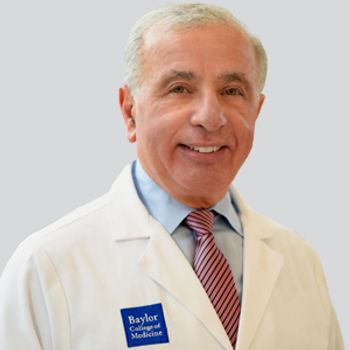
A net benefit was observed for all functional outcomes across the entire range of the modified Rankin Scale despite an increased risk of symptomatic intracranial hemorrhage.

Marco Meglio, Assistant Managing Editor for NeurologyLive, has been with the team since October 2019. Follow him on Twitter @marcomeglio1 or email him at [email protected]

A net benefit was observed for all functional outcomes across the entire range of the modified Rankin Scale despite an increased risk of symptomatic intracranial hemorrhage.

The study authors noted that dementia prevention could become a compelling indication for older individuals receiving antihypertensive treatment.

The chief scientific officer of the Parkinson’s Foundation discussed how the PD GENEration initiative tackles 1 of the greatest unmet needs for patients with Parkinson disease.

Veronica Hood, PhD, of the Dravet Syndrome Foundation, details the recently accepted ICD-10 codes for Dravet syndrome and what benefit they bring to patients.

New recommendations were developed for the use of rituximab, eculizumab, and methotrexate, as well as updates on previous recommendations for thymectomy.

The decision was based on findings from the phase 3 THALES trial, which showed aspirin plus ticagrelor significantly reduced stroke and death compared with aspirin alone in patients with acute ischemic stroke or TIA.

Based on data from a study of 686 patients with subjective cognitive impairment or dementia, the PrecivityAD blood test correctly identified brain amyloid plaque status in 86% of the patients.

The new codes have broader implications in helping clinicians understand the morbidity and mortality related to the disorder.

Joe Verghese, MBBS, MS, details the research being conducted on motoric cognitive risk syndrome and noninvasive brain stimulation in Alzheimer disease.

Findings from PD GENEration will contribute to the biological understanding of the disease and help researchers assess the impact of each mutation.

The percent change from baseline was lower in those who initiated ocrelizumab early than those initially on placebo for both T2 lesion volume and T1 hypointense lesion volume.

The findings suggest that poor speech-in-noise hearing may be an early marker of underlying dementia processes.

Anup Patel, MD, section chief of pediatric neurology at Nationwide Children’s Hospital, explained how care for patients with Lennox-Gastaut syndrome has changed throughout the pandemic.

The researchers concluded that the effect of lowered blood pressure might not be evident in specific domains of cognitive function, but instead distributed across multiple domains.

The company is planning a pivotal trial of blarcamesine in Parkinson disease dementia after submitting results of the phase 2 study to the FDA for regulatory guidance.

In part 2 of this interview, Elias Kouchakji, MD, gives perspective on pamrevlumab’s unique pathway as a Duchenne muscular dystrophy treatment nearing the end of the clinical pipeline.

The authors noted that research is still needed to establish standards for cell mobilization and immune-conditioning regimens.

The professor of neurology at the NYU Langone Grossman School of Medicine discussed a recent study she and colleagues conducted on new neurological disorders in patients with COVID-19.

The FDA told Xeris that it could advance diazepam directly into a phase 3 registration study for both pediatric and adult patients with epilepsy after reviewing phase 1b results.

Zosano plans to request a Type A meeting with the FDA to discuss strategies to address the FDA’s comments regarding the new drug application.

On the heels of successful long-term data, evobrutinib seeks to maintain its high efficacy in 2 pivotal phase 3 clinical trials.

Statistically significant worsening on the Epworth Sleepiness Scale was observed in patients randomized to placebo compared to participants who received JZP-258.

Study results suggest daxibotulinumtoxinA has the potential to reduce the frequency of cervical dystonia treatments by up to 50% annually.

Elias Kouchakji, MD, provides details of the phase 3 LELANTOS study of novel antibody pamrevlumab for the treatment of Duchenne muscular dystrophy.

The use of real-time quaking-induced conversion and protein misfolding cyclic amplification assays accurately allowed researchers to differentiate synucleinopathies from nonsynucleinopathies.

Decreases in weekly migraine days remained steady during the last 2 weeks of the first quarter, with a similar maintenance of response during the second quarter.

Patients with neurologic disorders were more often older, male, white, hypertensive, diabetic, intubated, and had higher sequential organ failure assessment scores.

Italfarmaco is expected to report topline data from the phase 3 EPYDIS trial in June 2022.

The largest real-world study of patient-reported outcomes in people with migraine demonstrated the positive benefits that the CGRP mAbs drug class has had on migraine.

Topiramate oral solution is Eton’s third neurology product candidate submitted to the FDA, this time seeking 3 indications.